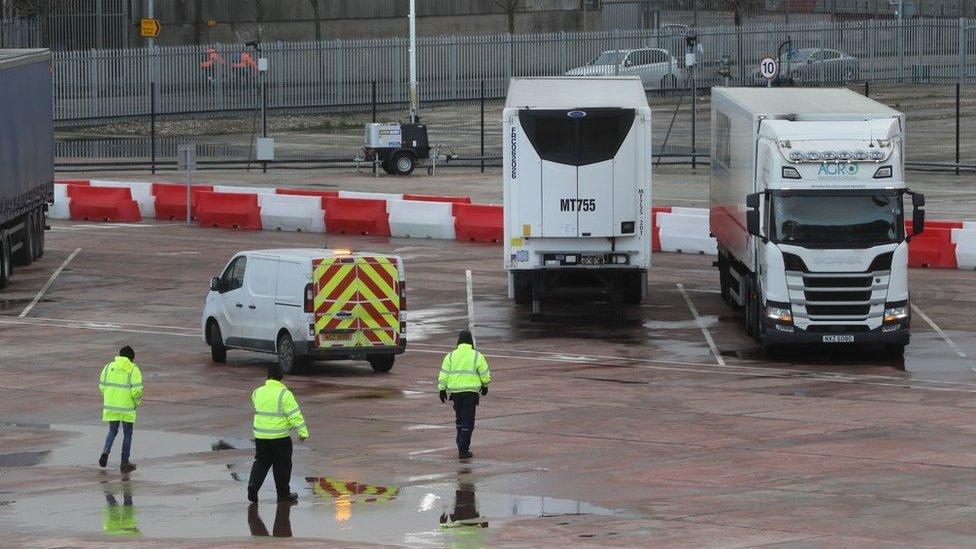Brexit: EU says patience wearing thin with UK in talks to avoid trade war
- Published
- comments
Protecting trade flows east-west and north-south across the island of Ireland is "easily doable", says Boris Johnson
The EU says its patience is "wearing very thin" with the UK in talks aimed at avoiding a post-Brexit trade war.
Top EU official Maros Sefcovic said the UK must start checking goods entering Northern Ireland, as agreed in the 2019 Brexit "divorce" settlement.
The UK says it is ready to ignore the rules to prevent further disruption - sparking threats of EU retaliation.
Boris Johnson said a solution that protects trade flows and the peace process was "easily doable".
And he dismissed talk of a trade war with the EU, saying he was "not worried" it would overshadow the G7 summit.
The prime minister is in Cornwall, where he will host the leaders of the world's richest nations, including US President Joe Biden, who is said to have "deep" concerns that a UK-EU trade row could endanger peace in Northern Ireland.
Asked about this, Mr Johnson said everyone needed to be "absolutely clear" that the purpose of the Northern Ireland protocol - the part of the Brexit deal at the centre of the row - was to "uphold the Belfast Good Friday Agreement, to make sure that we keep the balance in relationships in Northern Ireland".
'Positive'
He said he was "optimistic" a solution could be found that "protects the peace process, but also guarantees the economic and territorial integrity of the whole United Kingdom".
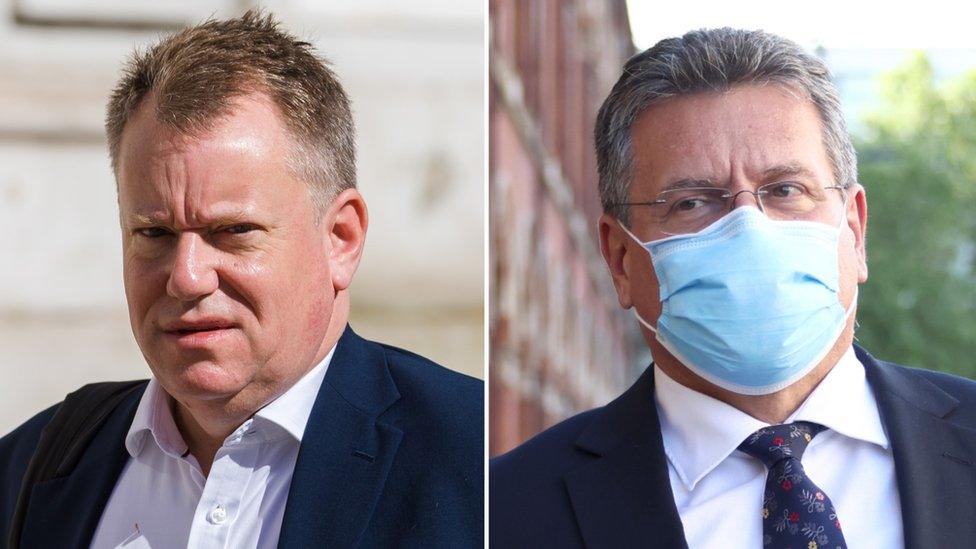
Lord Frost (L) has been discussing border issues with his EU counterpart Maros Sefcovic in central London
Talks between Mr Sefcovic - a vice-president of the European Commission - and UK Brexit minister Lord Frost broke up earlier without agreement.
Mr Sefcovic said he was "positive we can find a solution" but added: "Our patience really is wearing very, very thin, and therefore we have to assess all options we have at our disposal."
This could include legal action, arbitration or retaliatory trade measures such as tariffs, he explained.
He said "trust" had to be restored between the two sides, after the UK had broken the terms of the 2019 Northern Ireland protocol.
A key flashpoint is a looming ban on the export of sausages and other chilled meats from Great Britain to Northern Ireland.
Great Britain (England, Scotland and Wales) no longer follows EU rules but Northern Ireland does - because it shares a land border with the Republic of Ireland, an EU member.
EU food safety rules do not allow chilled meat products to enter its market from non-members like the UK. Frozen meat is not covered by the rules.
'Threats'
In January, the two sides agreed a six month "grace" period to allow companies to set up alternative supply chains, but that runs out at the end of June.
The UK has already held back from carrying out full checks on supermarket goods and parcels moving from Great Britain to Northern Ireland, prompting the EU to accuse the UK of undermining the protocol and to begin legal proceedings.
Mr Sefcovic said: "If the UK were to take further unilateral action in the coming weeks the EU will not be shy in acting swiftly, firmly and resolutely to ensure the UK abides by its international obligations."
A UK source close to the negotiations said: "Nobody wants to get into a trade war or anything close to it."
It was "much better to find agreed ways forward", added the source, and "the people in Northern Ireland want solutions not threats".
"But unfortunately we have got used to living in an atmosphere where there are threats."
Asked by ITV's Robert Peston if the UK would take unilateral action, Northern Ireland Secretary Brandon Lewis said "we're not at that stage yet but we've said we will keep all options open."

There's a clash of cultures at the heart of this increasingly serious dispute.
The EU is a union of laws and rules - and once it has an agreement it tends to stick to the details.
The British government, on the other hand, decided to kick some of the details down the road in its desire to "Get Brexit Done".
But those details never went away, and now they are threatening to provoke another crisis in Britain's relationship with Europe, and to destabilise Northern Ireland.
During the 2019 general election campaign Boris Johnson said there would be no checks on goods moving in either direction between Great Britain and Northern Ireland as a result of his Brexit deal, even though official documents at the time made clear that there would be.
Now his government says the EU needs to show more flexibility, that it's being too legalistic.
The practicalities of implementing the Northern Ireland Protocol in full are certainly pretty challenging. Northern Ireland's chief vet recently told Assembly members in Belfast that it would require more checks on food than are done in the whole of the EU. And he only has 12 vets.
The EU says it is prepared to be flexible, but says the UK cannot walk away from its legal obligations.
Both sides talk about "considering all our options" if a compromise can't be found.
In public at least, it's hard to see where the common ground lies.

Mr Sefcovic said the EU had offered a temporary solution to the chilled meats row, ahead of a comprehensive trade deal, but he said the UK was not prepared to accept it because it would involve signing up to EU food standards.
"Ideology prevails over what is good for the people of Northern Ireland," he added.
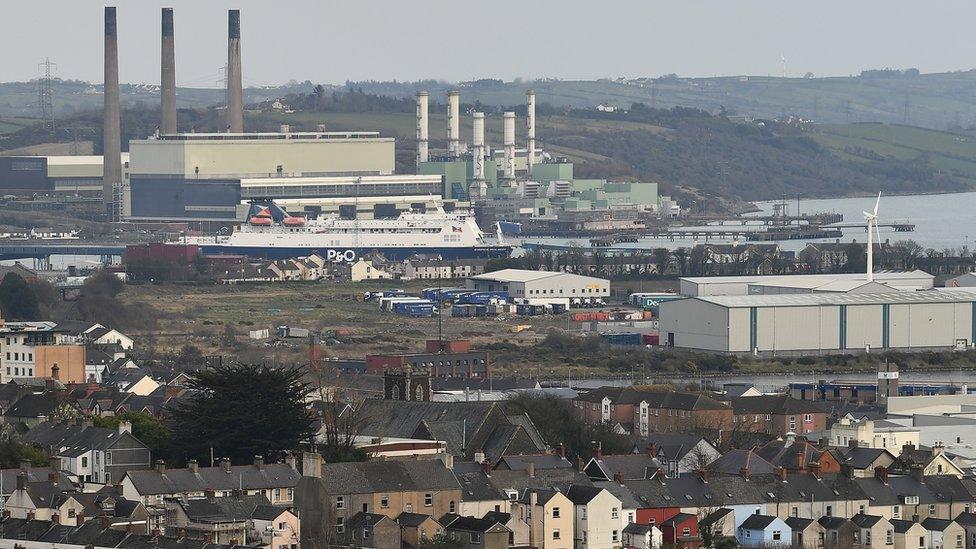
Northern Irish ports such as Larne have seen additional border checks under the protocol
Speaking after his meeting with Mr Sefcovic, Lord Frost said the protocol was "being implemented in a way which is causing disruption in Northern Ireland and we had some pretty frank and honest discussions about that situation".
"There weren't any breakthroughs, there weren't any breakdowns either and we are going to carry on talking," he added.
"What we really now need to do is very urgently find some solutions, which support the Belfast Good Friday Agreement, Support the peace process in Northern Ireland and allow things to return to normal."
Lord Frost said the EU was insisting that the two sides "operate the protocol in an extremely purist way" and he did not see any problem with continuing to allow exports of chilled meats.
"We don't see what risk is caused to Northern Ireland if chilled meats are imported there from GB."
Northern Ireland's deputy First Minister Michelle O'Neill - who also took part in the meeting - challenged the UK government to "honour its commitments" on the Brexit protocol.
"Certainly there's a frustration that the British government have signed up to this agreement, however they have failed to bring forward ways to implement the Protocol in its entirety," she added.
Related topics
- Published2 February 2024

- Published8 June 2021
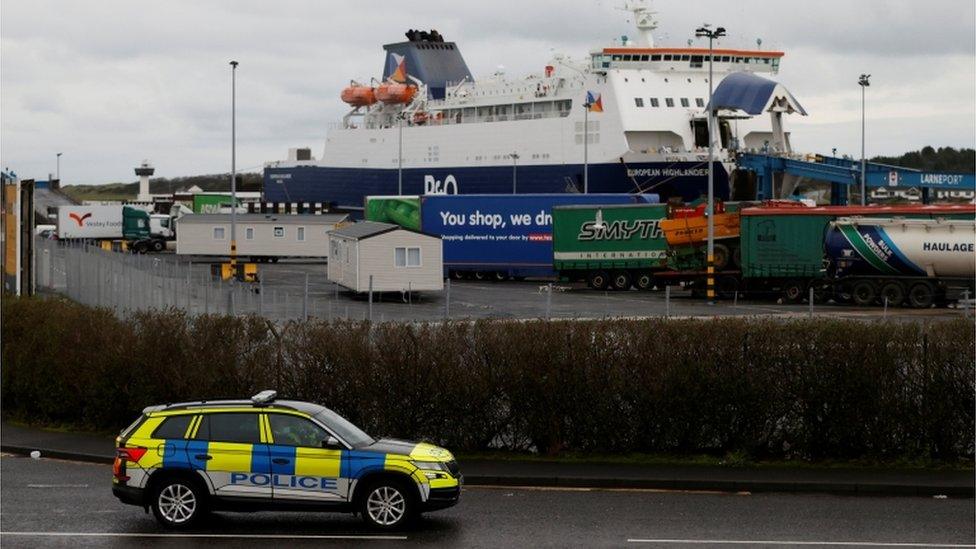
- Published15 March 2021
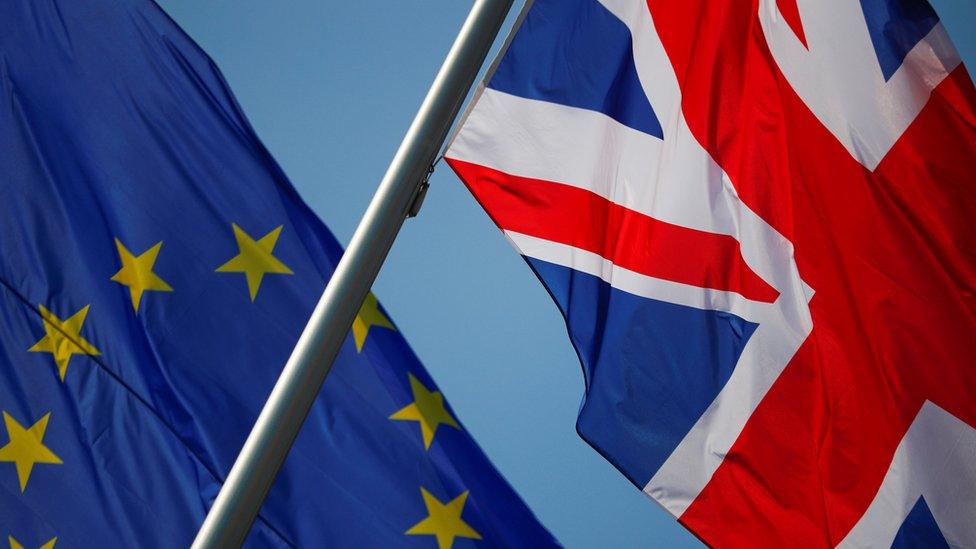
- Published23 January 2021
